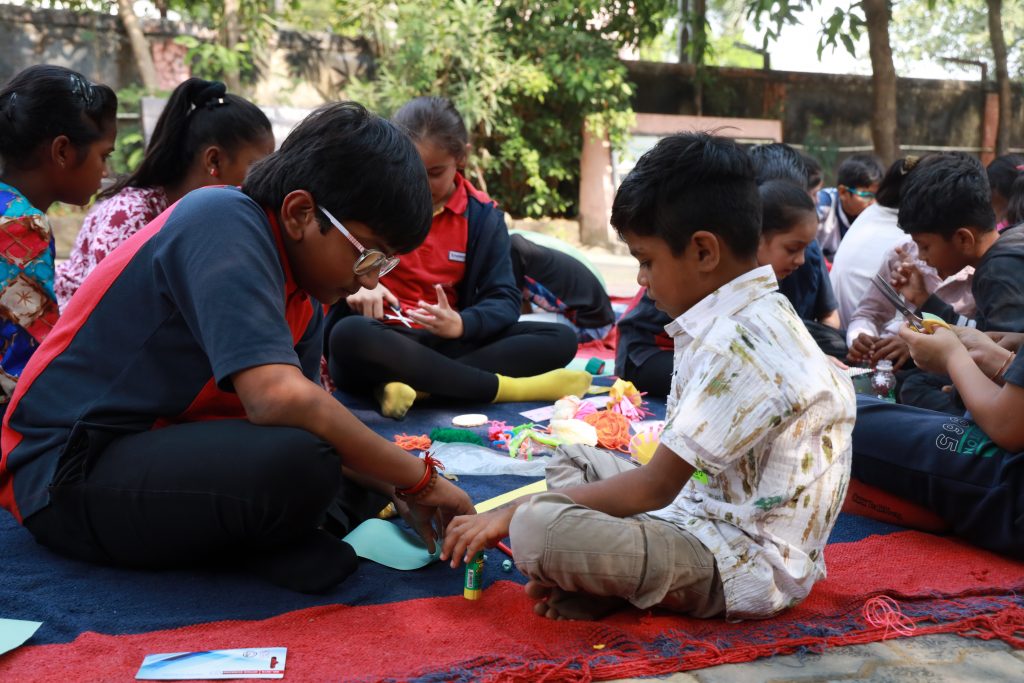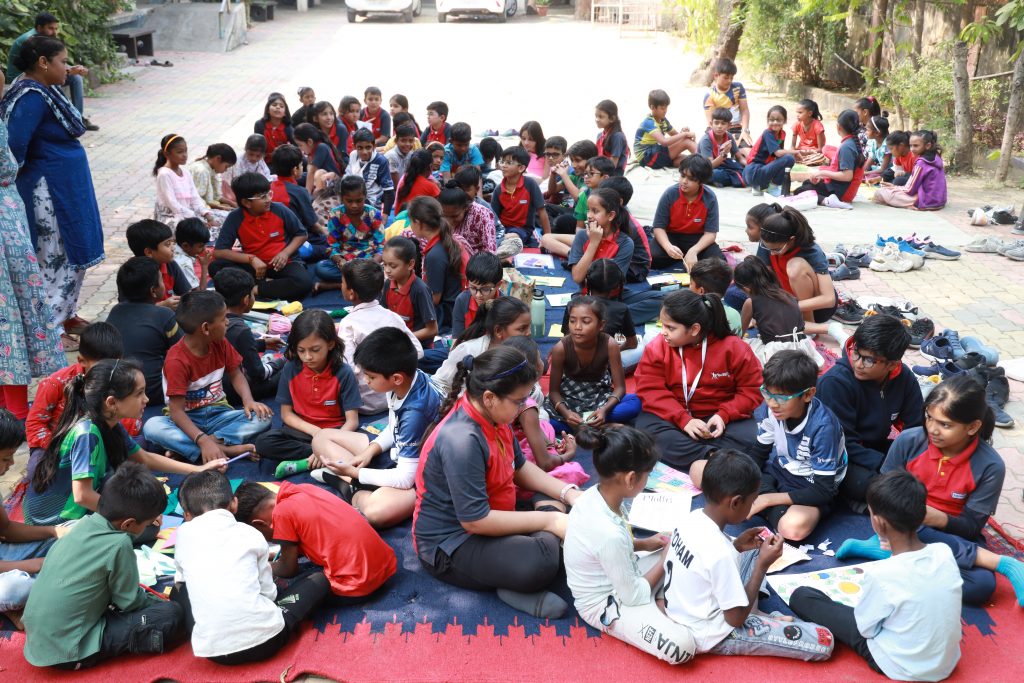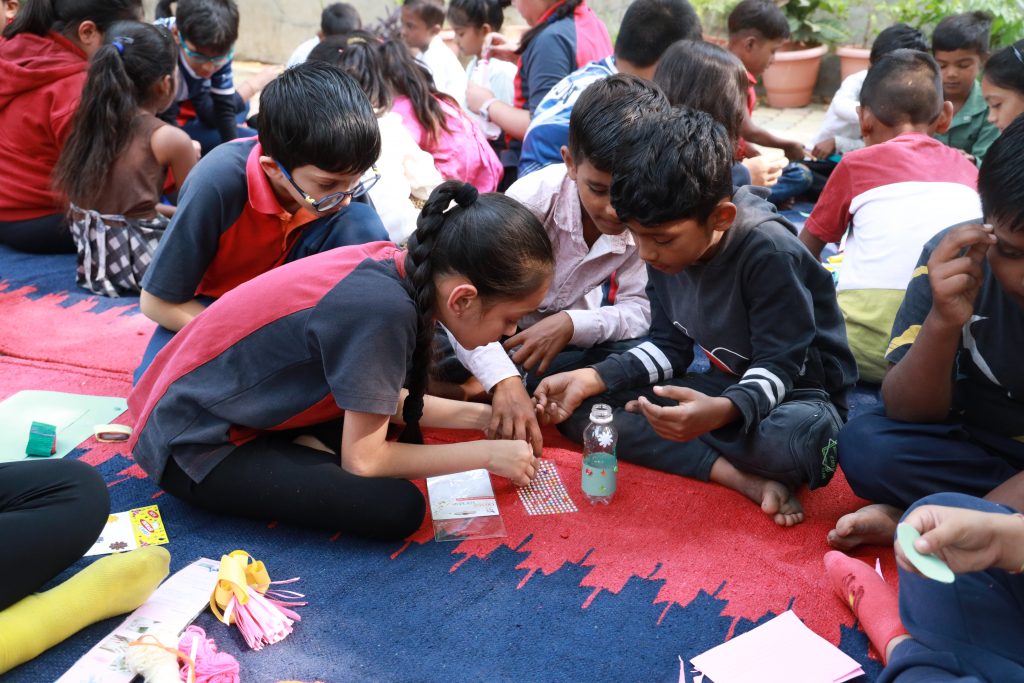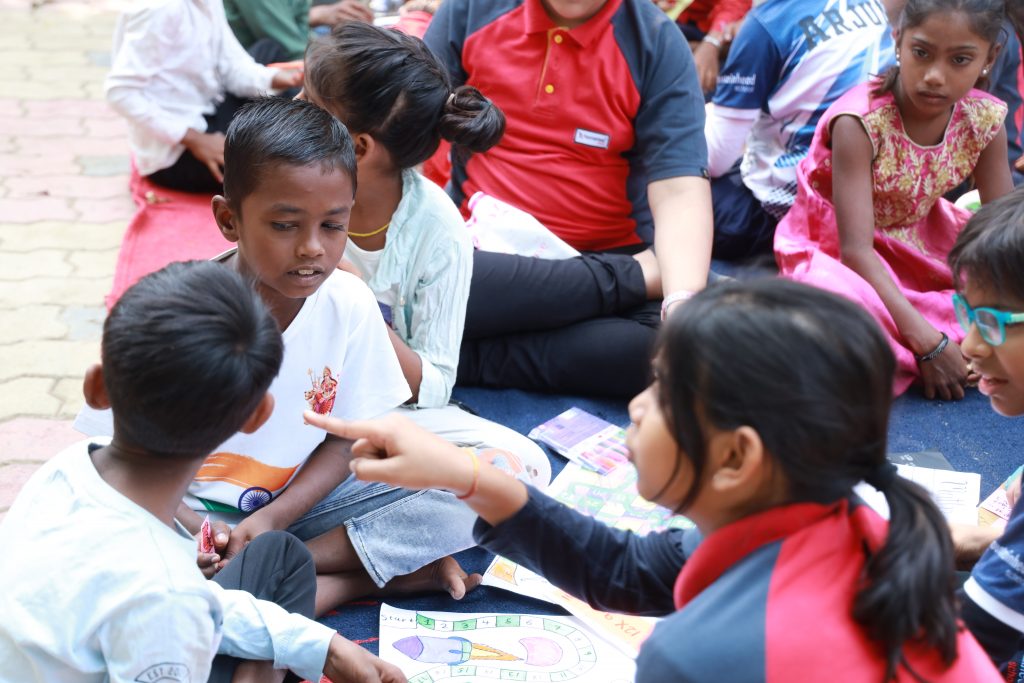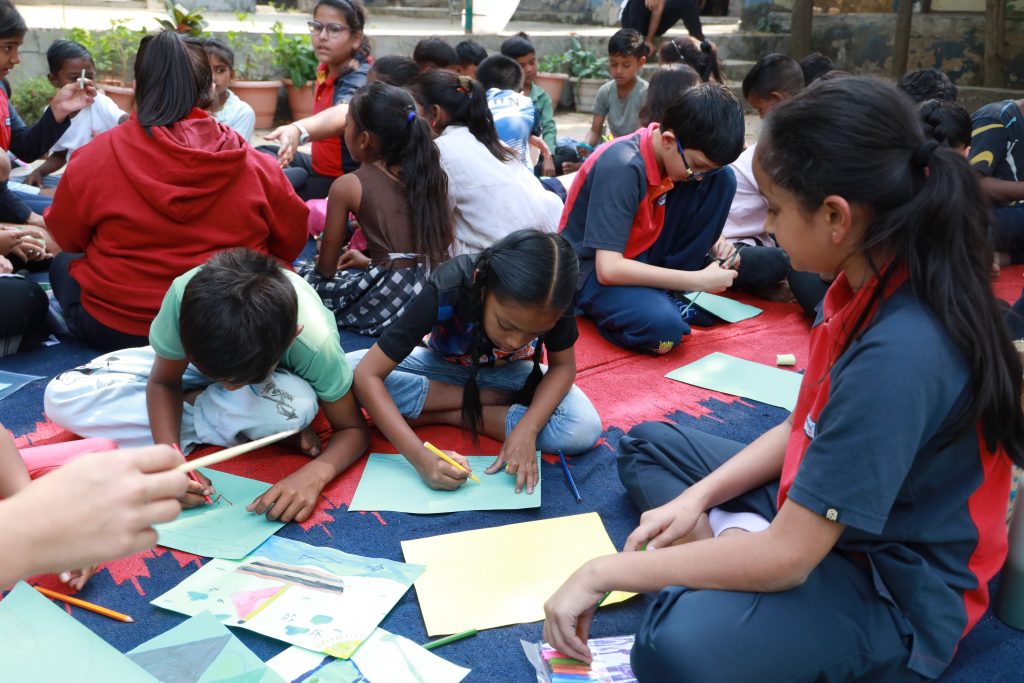by Dhanraj Kapadia, Urmi Shah, Twisha Jalan, Rajveer Lakhani
Project Outcome: As a tangible outcome, students devised strategies to support access to quality education for underprivileged children at Narthan Prathmik Shala, focusing on both academic and skill-based learning to promote long-term sustainability.
To achieve this, students formed groups and worked on different aspects of skill-building through:
Art and Craft Sessions – Teaching origami, bookmark-making, and home décor to encourage creativity and provide potential income-generating skills.
Painting Sessions – Allowing students to express themselves while enhancing fine motor skills and artistic abilities.
Reading Sessions & Indoor Games – Helping children develop literacy, communication, and cognitive skills through interactive learning.
These activities were designed to equip the children with practical skills that could help them become independent and utilize these talents in their daily lives, fostering self-sufficiency and better opportunities for the future.
Project Description: This project, led by grade 4 students, focused on addressing the global challenge of poverty through the lens of education. As part of their PBL (Project-Based Learning) initiative under the transdisciplinary theme “Sharing the Planet”, students explored the challenges, risks, and opportunities that children face worldwide. The project was driven by their problem statement: How can we help children of Narthan Prathmik Shala receive a good quality education so that they can overcome poverty in the longer run?
Subject and Unit Connection:
The project was designed within the Risks and Challenges unit, integrating concepts of Form (understanding challenges, risks, and opportunities), Perspective (children’s responses), and Function (the role of individuals and communities in supporting child rights).
Process and Approach:
Students applied critical thinking, research, and communication skills to analyze how lack of quality education contributes to poverty. They explored data and case studies, gathered insights through field visits, and examined the role of child rights, equality, health, resilience, and safety in overcoming challenges.
Using ethical research skills, students conducted information transfer, interpreted findings, and engaged in social and emotional intelligence to empathize with children facing educational hardships. They collaborated in teams, brainstormed possible solutions, and designed action-driven initiatives to make a meaningful impact.
